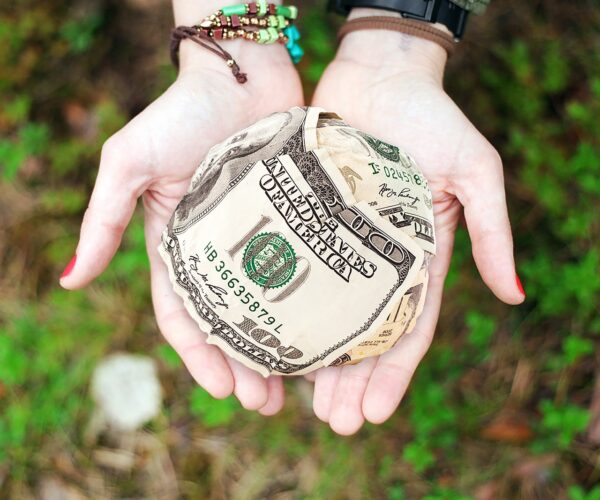“Don’t tell me what you value, show me your budget, and I’ll tell you what you value.” – Joe Biden
Did you ever stop to think about where you get your ideas of what money means to you? What money is to you? And what does it do for you?
Believe it or not, the way you feel about money is something that starts early in life. We all have a complex relationship when it comes to money. How you acquire, spend and manage money is largely due to two factors: the way you were brought up during childhood about money and values, and the way you organized this information in your mind.
Why Having the Right Relationship with Money is Important
At each end of the spectrum is insecurity. On one end, you might be extremely frugal and concerned with the lack of money. On the other, you might be very irresponsible with your money and spend it like there’s no tomorrow. The way you process and organize money messages and the way you model money behavior is unique. Even individuals who are raised in the same household don’t necessarily have the same opinion on money or develop the same relationship with money.
Before you can get on the path to financial freedom, you have to first fix your relationship you have with money. It starts with taking the time to figure out and understand what money means to you.
“If you live for having it all, what you have is never enough.” – Vicki Robin
Even though you might develop your financial style early, it can change with time or due to circumstances. It’s not uncommon for people who have gone through significant life change to adopt a very different relationship with money.
Your personal relation and emotional interaction with money is probably one of the most crucial relationships in life that a person can have. Because, it plays an important role in physical, emotional, financial and overall well-being. The thoughts and emotions regarding your financial circumstances shape your attitudes and beliefs about money. And together they create your relationship with it.
Money relationships are complicated: this is why so many individuals struggle with them. A simple way to start to evaluate this complex issue will be to identify a word that best describes how you feel about your financial circumstances. Are there words that describe how you feel about money? For example, words like hopeless, pessimistic, or indifferent versus positive, or confident. Then, list the top reasons why you chose your particular category. Those reasons will help to uncover main areas most in need of attention when starting to work to improve your financial future.
“Never spend your money before you have it.” – Thomas Jefferson
It’s not until you really know how you feel about it, that you can work on changing it. You might not have given much thought as to how you treat your money and how that affects how your money will treat you in return. To set yourself up for future financial stability, financial well-being requires a healthy relationship with your money. If you treat your money right, your money will treat you right.
Think of it like a personal relationship with that special someone. If you nurture, value and appreciate that other person, they will be there for you when you need them. And they’ll give more of themselves to you. But, if you neglect, abuse and don’t value them, they won’t be there for you and eventually they’ll leave you.
How you treat your money works in the same way. Treat it right and you’ll have more of it. But if you don’t, just like that special someone, even money will leave you…broke! Your relationship with your money gives you the basis for your money habits.
It’s only by knowing and understanding the thoughts and emotions about money and what money means to you, that you’ll be in the position to develop a healthy relationship with it for the future. Take care of your money and your money will take care of you!
Before you go, I want to invite you to join my FREE email list community. By signing up today, you’ll get notifications of my latest posts. Plus, access to my FREE Resources Library. Click Here to sign up!
Recommended Reading:

